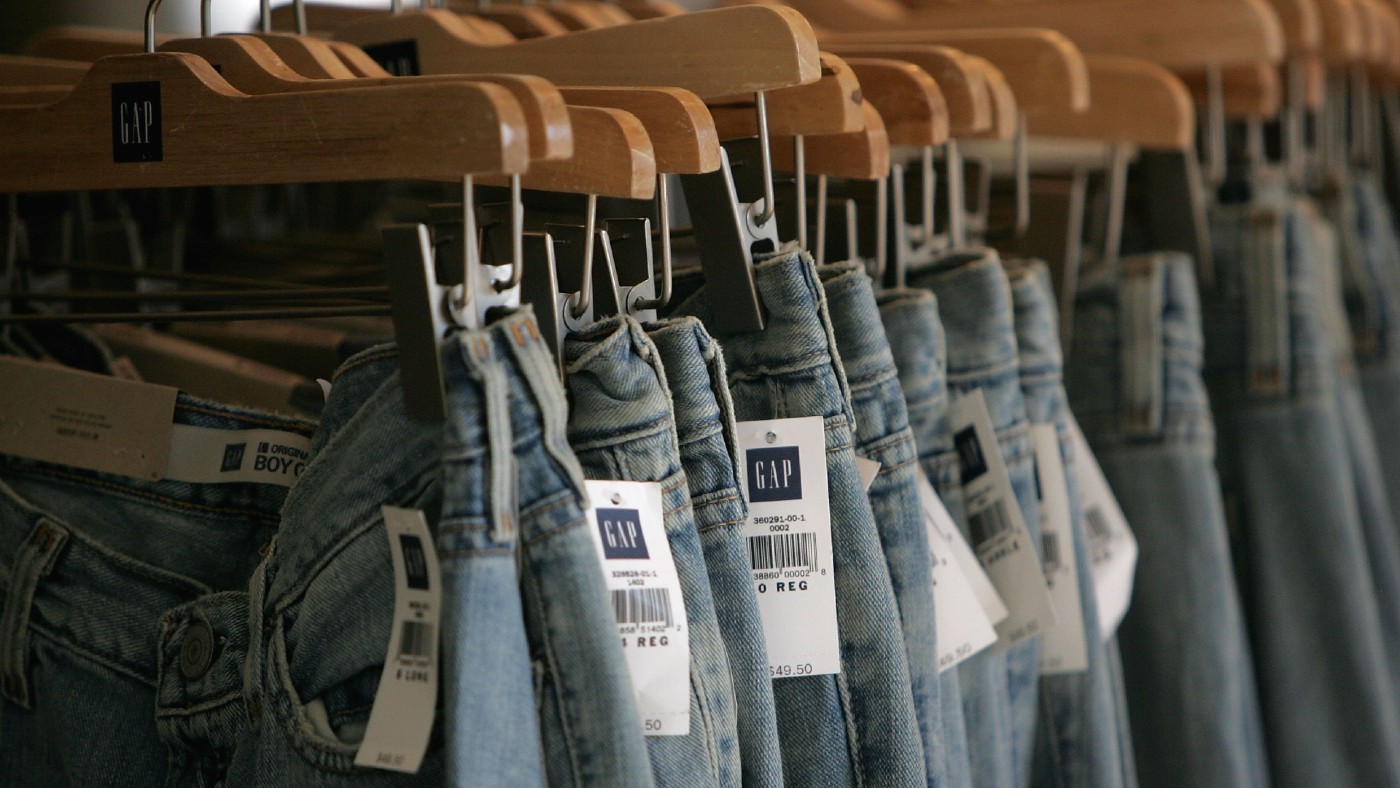Farewell, Gap: a high street staple falls
Gap offered nostalgia and dated denim, but failed to keep up with the times

Yet another familiar fashion retailer is disappearing from our high streets, said Anthony Kent on The Conversation. Last week, the “once-mighty” Gap revealed that it is closing its 81 remaining UK and Ireland stores, and moving to online only sales.
Founded by two property developers in San Francisco in 1969, Gap arrived in Britain in 1987, and in the 1990s it seemed unassailable, said Anna Murphy in The Times. In that era, before Zara brought us fast fashion and turned “the British everywoman into a trends junkie”, we flocked to Gap for clothes that were affordable, well-made and “styled to last”.
In truth, the “basics” that were the brand’s signature were not dissimilar to lines at Marks & Spencer – but Gap was just that bit cooler and more on point, with shops styled “like Manhattan lofts” and beguiling marketing. The cool people in its ads may have been wearing dull chinos, but they looked as though they might be about “to write a hip-hop song or ride across Mongolia”.
The Week
Escape your echo chamber. Get the facts behind the news, plus analysis from multiple perspectives.

Sign up for The Week's Free Newsletters
From our morning news briefing to a weekly Good News Newsletter, get the best of The Week delivered directly to your inbox.
From our morning news briefing to a weekly Good News Newsletter, get the best of The Week delivered directly to your inbox.
Recent visitors to Gap’s stores, with their racks full of discounted clothing covered in naff logos, would be astonished to learn that the brand was once embraced by high fashion, said Lisa Armstrong in The Daily Telegraph. In 1992, Anna Wintour put ten models in white Gap shirts on the cover of Vogue. Four years later, Sharon Stone turned up to the Oscars in a black Gap turtleneck. Well into the noughties, Gap was working with top stylists and designers.
So where did it go wrong? In retrospect, the rot set in 20 years ago, when sales slumped and bean counters were brought in. Instead of investing in creativity, their strategy was based on identifying successful lines and recycling them.
But Gap’s wounds were not all self-inflicted. Any brand that defines one generation risks being rejected by the next - and when the BabyGap kids grew up, they found little in Gap that spoke to them. Gap just failed to keep up with the times, said Alys Key in The i Paper.
The high street isn’t doomed, but unless you can compete with the online giants on price (as at dirt-cheap Primark), you have to give people a compelling reason to come through your doors. Gap offered nostalgia and dated denim, and it wasn’t enough.
A free daily email with the biggest news stories of the day – and the best features from TheWeek.com
-
 Which way will Trump go on Iran?
Which way will Trump go on Iran?Today’s Big Question Diplomatic talks set to be held in Turkey on Friday, but failure to reach an agreement could have ‘terrible’ global ramifications
-
 High Court action over Cape Verde tourist deaths
High Court action over Cape Verde tourist deathsThe Explainer Holidaymakers sue TUI after gastric illness outbreaks linked to six British deaths
-
 The battle over the Irish language in Northern Ireland
The battle over the Irish language in Northern IrelandUnder the Radar Popularity is soaring across Northern Ireland, but dual-language sign policies agitate division as unionists accuse nationalists of cultural erosion
-
 Will SpaceX, OpenAI and Anthropic make 2026 the year of mega tech listings?
Will SpaceX, OpenAI and Anthropic make 2026 the year of mega tech listings?In Depth SpaceX float may come as soon as this year, and would be the largest IPO in history
-
 Leadership: A conspicuous silence from CEOs
Leadership: A conspicuous silence from CEOsFeature CEOs were more vocal during Trump’s first term
-
 Ryanair/SpaceX: could Musk really buy the airline?
Ryanair/SpaceX: could Musk really buy the airline?Talking Point Irish budget carrier has become embroiled in unlikely feud with the world’s wealthiest man
-
 Powell: The Fed’s last hope?
Powell: The Fed’s last hope?Feature Federal Reserve Chairman Jerome Powell fights back against President Trump's claims
-
 Taxes: It’s California vs. the billionaires
Taxes: It’s California vs. the billionairesFeature Larry Page and Peter Thiel may take their wealth elsewhere
-
 Buffett: The end of a golden era for Berkshire Hathaway
Buffett: The end of a golden era for Berkshire HathawayFeature After 60 years, the Oracle of Omaha retires
-
 Is $140,000 the real poverty line?
Is $140,000 the real poverty line?Feature Financial hardship is wearing Americans down, and the break-even point for many families keeps rising
-
 Coffee jitters
Coffee jittersFeature The price of America’s favorite stimulant is soaring—and not just because of tariffs